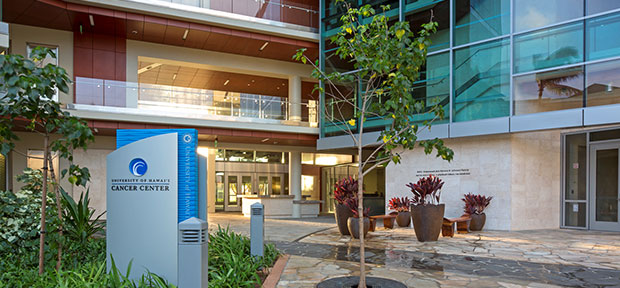
The University of Hawaiʻi Cancer Center has partnered with 69 other National Cancer Institute (NCI)-designated cancer centers to issue a statement today urging for increased human papillomavirus (HPV) vaccination and screening to eliminate HPV-related cancers, starting with cervical cancer.
These institutions collectively recognize insufficient vaccination as a public health threat and call upon physicians nationwide, parents and young adults to take advantage of this rare opportunity to eliminate several different types of cancer in men and women.
As a part of this initiative, the UH Cancer Center conducted a statewide survey of primary care physicians in 2015–2016 who identified specific barriers to adolescent HPV vaccine uptake. The barriers identified were related to logistics, attitudes and perceptions, as well as the absence of school-based HPV vaccine requirements.
“HPV vaccination remains a powerful tool in the effort to prevent cancers caused by the human papillomavirus in Hawaiʻi,” said Brenda Hernandez, UH Cancer Center epidemiologist and senior author of the study published in the Journal of Community Health. “The need for HPV vaccination is underscored by the steady increase in certain HPV-associated cancers including anal cancers in Hawaiʻi and the U.S. overall.”
Added UH Cancer Center Director Randall Holcombe, “Preventing cancer is our central mission. We are honored to join our NCI-designated cancer center colleagues and other cancer prevention organizations in recommending this call to action to reduce the burden of HPV-related cancers.”
Nearly 80 million Americans—one out of every four people—are infected with HPV. Of those millions, more than 31,000 will be diagnosed with an HPV-related cancer this year. Despite those staggering figures and the availability of a vaccine to prevent the infections that cause these cancers HPV vaccination remains low in the U.S.
—By Nana Ohkawa

